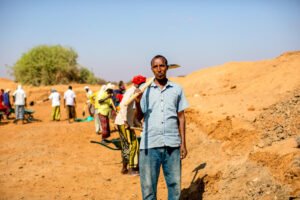Monday, 2 March 2026
Thailand Gears Up for Food Production to Serve the World
“Thailand 4.0” economic model offers generous incentives and tax exemptions to high tech companies that set up advanced manufacturing facilities in the country — including agro-processing and food for the…

“Thailand 4.0” economic model offers generous incentives and tax exemptions to high tech companies that set up advanced manufacturing facilities in the country — including agro-processing and food for the future.
Singapore – The UN Food and Agriculture Organization projects the global population could swell to 10 billion in the next 50 years. Feeding that many additional people will require new technologies and practices that are scalable, profitable, and ecologically sustainable.
Thailand is stepping up to strengthen food supply with a generous investment program designed to cultivate innovation-driven projects. “Thailand 4.0” economic model offers generous incentives and tax exemptions to high tech companies that set up advanced manufacturing facilities in the country — including agro-processing and food for the future.
Alongside its internationally rated cuisine, Thailand is a farming powerhouse. Roughly 40% of its population works in the agricultural sector. The country’s home-grown food processing industry ships a huge range of products (from seafood to energy drinks) to supermarket shelves across the globe. And it has pioneered technologies to increase yields for Asia-specific crops and staples.
With the arrival of biotech breakthroughs like CRISPR, the food and agriculture sector is ripe for disruption. Thankfully, many world tech labs and pharma companies already call Thailand home. The combination of a rich food-tech ecosystem and cost-effective operating environment makes the nation perfect for incubating embryonic concepts; Chiang Mai-based researchers are already using molecular-marker technology to cut seed line development time in half. More projects like this that push the envelope on molecular and genetic engineering are especially welcome. As climate change leaves millions, more in need of food aid each year, the development of more robust crops that can survive droughts and flooding will take on new urgency.
Thailand’s strategic location at the center of Asia and its deep investment in trade and logistic infrastructure make it a perfect gateway to ASEAN and its 630 million inhabitants. The country has also invested heavily in education: a network of 24 universities witness 7,000 students graduate each year with a biotechnology background.
In 2016 alone, Thailand Board of Investment (BOI) approved more than 320 agricultural projects valued over $4.8 billion. Incentives are especially compelling for innovative projects in fruit and vegetable food packaging, biofuel manufacture, supplements and medical food, rubber science and extraction of bio-active ingredients.
Technology
IPC Report Flags Rapidly Deteriorating Food Security across Somalia
Mar 02, 2026 | Africa
University of Florida Develops Vitamin A–Rich Tomato to Tackle Global Deficiency
Mar 02, 2026 | Food
Inside the World’s First AI Centre of Excellence for Chocolate and Cocoa
Mar 02, 2026 | Interaction
Food Testing
Australian Medical Bodies Push for Compulsory Health Star Labelling
Feb 24, 2026 | Australia
Tim Hortons Singapore Secures Majlis Ugama Islam Singapura Halal Certification Ahead of Ramadan
Feb 23, 2026 | Company News
More Popular
Wildbrine Launches Industry-First Fermented Bean Salad
Mar 02, 2026 | Company News
IPC Report Flags Rapidly Deteriorating Food Security across Somalia
Mar 02, 2026 | Africa
University of Florida Develops Vitamin A–Rich Tomato to Tackle Global Deficiency
Mar 02, 2026 | Food






